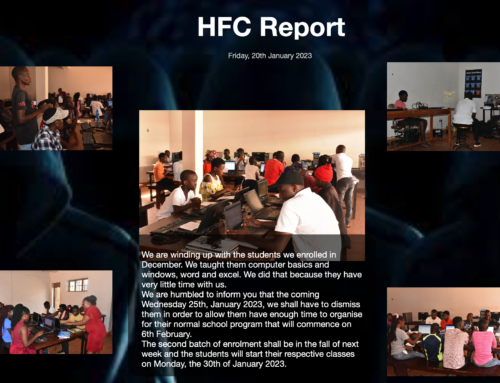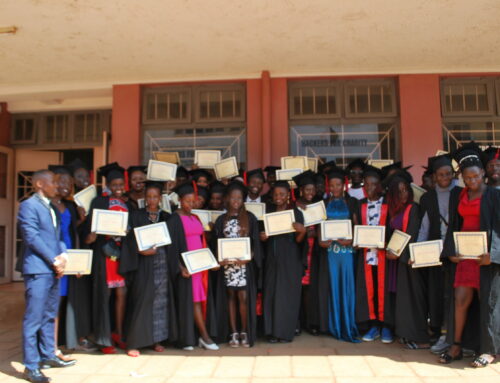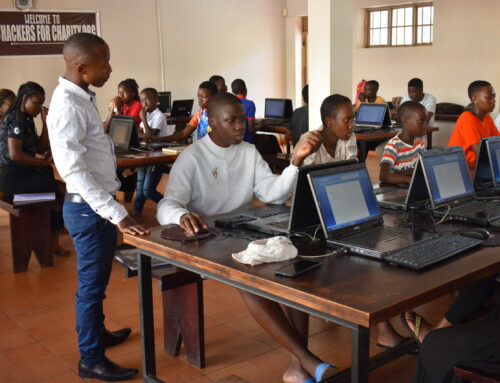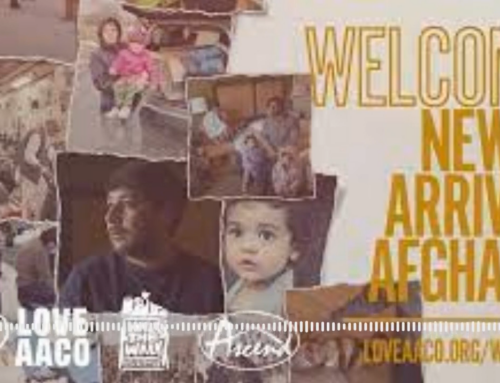This is not an easy post to write because I’m writing it from a bad emotional place.
Last week, @sehnaoui (aka Pilgrim, Khalil) was here. I admit I didn’t know Khalil all that well before last week. I knew him to be generous, smart and funny. We spent a good amount of time together at Derbycon, but conferences aren’t exactly the best places to really get to know someone.
When we parted ways at Derby, he told me he was, “coming to Uganda”.
I took this “with a grain of salt” as we Americans like to say. After all, I had heard this before. Although the promises are usually less grandiose, I’m used to “con promises” falling through. I get it. The “con world” isn’t the real world. I leave cons, and I forget stuff when I get back to my life. So I don’t fault people for this, but needless to say, I didn’t expect Khalil to come.
Then he started asking questions about travel logistics, then he booked his flight, and next thing I knew I was picking him up at the Entebbe airport.
He didn’t have an agenda. We didn’t make any plans. He just wanted to come and see what was what. He literally wanted to live life alongside us.
I’m embarrassed to admit that this made me uncomfortable. You see, I’m used to visitors (for other people’s non-profits) coming through with agendas. Every minute of every day is pre-planned to get the most bang for the buck. As a perfect example, we have a team planning on coming next year headed by longtime friend and HFC Uganda visitor Tim Rosenberg. I started the discussion with them by asking what each team member was passionate about. The answers ran the gamut from education to bitcoin to storytelling to social media and lots in between. I’m custom crafting activities to leverage their passions against our needs on the ground. It wan’t like that at all with Khalil. Without an agenda, we would just go through our routine and spend time together, you know, talking and relating and all that uncomfortable stuff.
From the moment Jen and I picked him up at the airport, the awkwardness began with a selfie in the van. I should say at this point that I’m much more comfortable in groups, speaking in public, that kind of thing. I just don’t know what to “do” when I’m one-on-one. But Khalil was impossible to resist. He was outgoing and quite socially adept. He had an infectious laugh and smile and was smart as a whip. I’ll also mention that he is a serious smart-aleck, can be very sarcastic and is quite opinionated, too and although these seem like faults, they became positively essential attributes. Within fifteen minutes, the awkwardness melted away and we were getting along like old friends.
The details of his trip are well-documented in his blog. He came with an open mind to report on what he saw, and he did that well. But there’s another side to Khalil’s visit: my perspective and the impact he had on us here in Uganda, and that could be a series of blog posts, but I’ll do my best to summarize.
Khalil and I butted heads quite a few times while he was here.
One of the first times was when we were discussing Internet speeds and capabilities. We connected him with a local MTN SIM card and a 30gb data package for his iPhone. It cost $106. He was thrilled with the speeds. Then he asked to use the WiFi at the Keep. He was horrified at how slow it was. He asked me why we didn’t have faster Internet at the Keep, “like what he had on his phone”.
I went into my usual rant. It was well-practiced. After all, everybody asks similar questions. I told him that the unlimited package we use at the Keep is a fixed price each month, but it’s slow. The upside is it lasts for a month no matter how much usage we have. His MTN 3G is fast, but obviously it has a data cap. I explained that we couldn’t afford to put in a 30GB package because our customers would tear through it because our pricing is hourly. I had more to say, but Khalil interrupted.
“Well how fast could they possibly tear through it?” he asked.
I told him that it would be “gone in a day” and tried to get back to my long list of reasons why this discussion was futile.
“Bulls**t,” he said. He brought up a calculator and did some quick math.
I realized I was in for a long week.
Based on his bandwidth calculations, it would take days, maybe even a week, based on part-time usage.
I changed course. I explained the cultural reasons why this would fail and presented the business case that showed we would lose money on the deal. I’ll spare you the details.
He changed course again, with, “Stop charging per hour. Charge per meg”.
I rolled my eyes. I told him that our existing system had been in place for four years. It had one day of downtime. It had no viruses. It was working well, and I didn’t want to break it. “And besides”, I said, “our software won’t charge per meg. That’s rather complex”.
He said, “Clearly you need a new system because your Internet sucks”.
He wasn’t listening to anything I said at this point. He was doing an Internet search, using his tethered phone because our Internet sucks.
After a few seconds of Googling, he says, “What about this software? True Cafe”.
I sat there gaping at him. “Yeah, what about it? That’s the software we use.”
He says, “It does per-meg packages.”
I made the mistake of arguing with him. “No, it doesn’t. I’m running it.”
I realized my mistake immediately and he called me on it. We were running a four-year-old copy of the software. Sure enough, the new version did what we needed. He pushed farther. “Now all you need is a router that supports multiple 3G sticks.”
I took him in the back and showed him our Cradlepoint MBR1200, which supports multiple internet connections including three 3g USB sticks.
He just looked at me and gave me a goofy grin. If you know Khalil, you know the one. And in that one look, I read volumes of commentary.
This was one of our first head-butting interactions. It took all of five minutes to sort through. In that five minutes, he blew apart a problem that had been irritating me and my customers me for four years, he out-Googled the “Google hacker” and most importantly he shined a light on a sad fact. I’ve been here, by myself for far too long.
Hackers make the impossible a reality. Every single day. That’s what we do. Somehow, in the course of five years, I’ve lost touch with that key principal. I’ve come to accept challenges as impasses. Yes, I can weed through a network and pivot from box to box finding my way around digital security blockades. That’s wired in my head. But the hacker mentality has become trapped in that box, only applicable to pentesting.
When I step back and look at it, I’ve stopped “hacking” solutions in Uganda. There are lots of reasons for this, but the biggest is that I’ve been away from hackers too long. Every now and then, I’ll post about a technical challenge and try to come up with the hacker community solution, but that’s tech support. I’ll apply my solution in my little box, without any “hacker review” because frankly it’s too hard to contextualize the full scope of my problem to show the big picture. I’m using the smartest hackers in the world as tech support drones. That sucks.
This scenario played out over and over again while Khalil was here. He would blast through perceived barriers over and over again with a startling and refreshing brashness. And it’s not because he’s any kind of specialist, it’s just that he’s a hacker, and he refuses to accept “no” for an answer.
As Khalil was leaving, one of our regular customers, Jeremy, came up and introduced himself to Khalil. He said, “I don’t know who you are but there’s a glimmer in Johnny’s eye I’ve never seen before”.
He was absolutely right. All I could say was, “It’s good to be around hackers again.”
Some say, “It’s better to have loved and lost than to never have loved at all”. I disagree with that statement, because once you’ve had something amazing, it’s nearly impossible to live without it. If you’ve never had it, you don’t know what you’re missing. To me, that’s better.
Khalil’s been gone for two days now. Before he came, I was fine slogging away in my own isolated world. But now, I’m finding it nearly impossible to go through the motions. I’ve caught a glimpse of something incredibly inspiring and powerful. I lived for a week with the wind back in my sails, amazed at the distance we covered together.
Today, it’s as if the wind is gone and I long for those windy days.
Khalil will be back. I have no doubt. But what about you?
Have you considered coming to Uganda? You really should. You don’t have to have an agenda, a purpose, or even very specific skills. If you can raise the money for a flight, we can handle the rest here in Uganda. Your mere presence can really make a difference. I guarantee you’ll have a profound impact on the work we’re doing here.
And to those of you that have supported us financially through the years, THANK YOU for giving us this amazing opportunity. We couldn’t do it without you.
And thank you Khalil, from the bottom of my heart.




